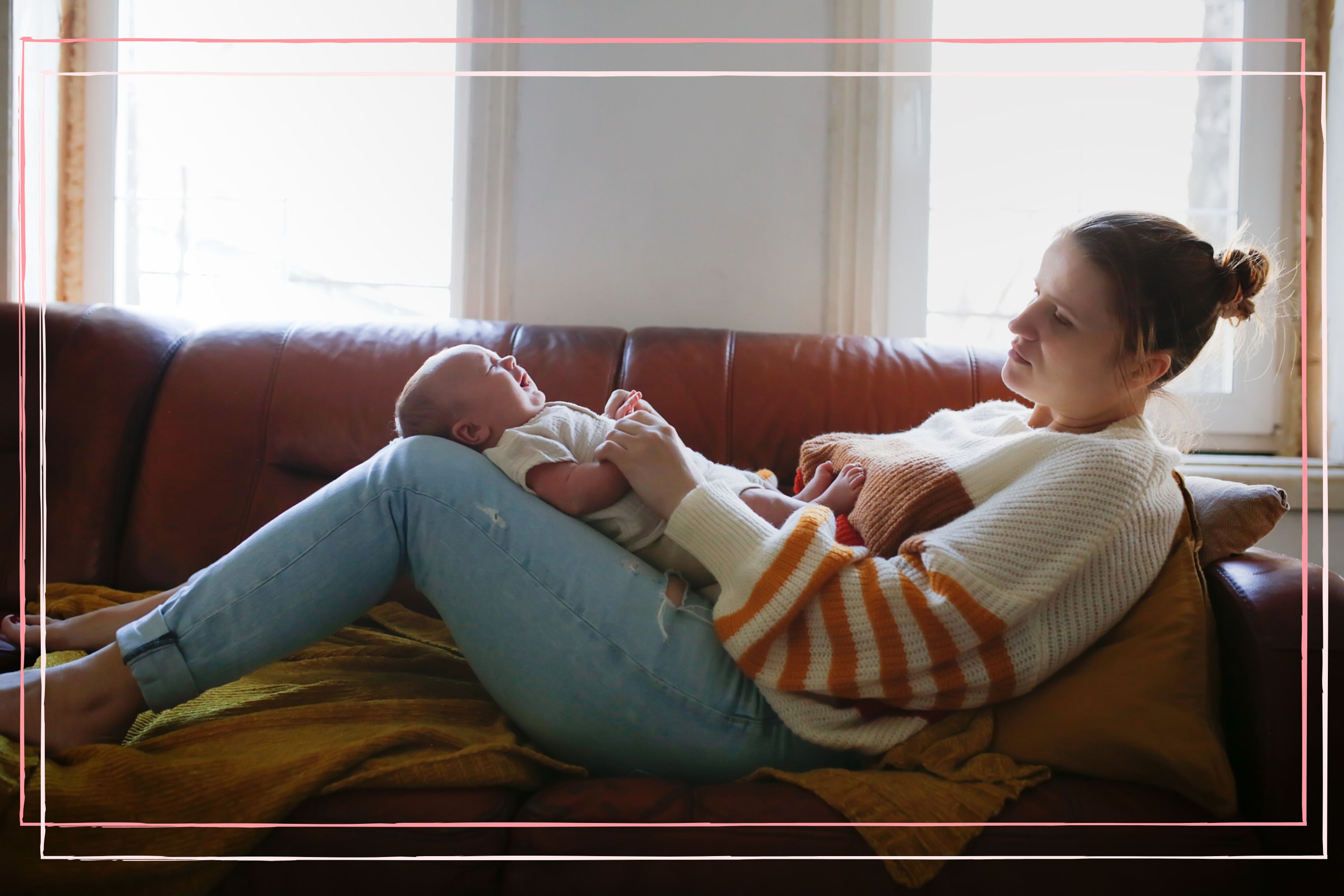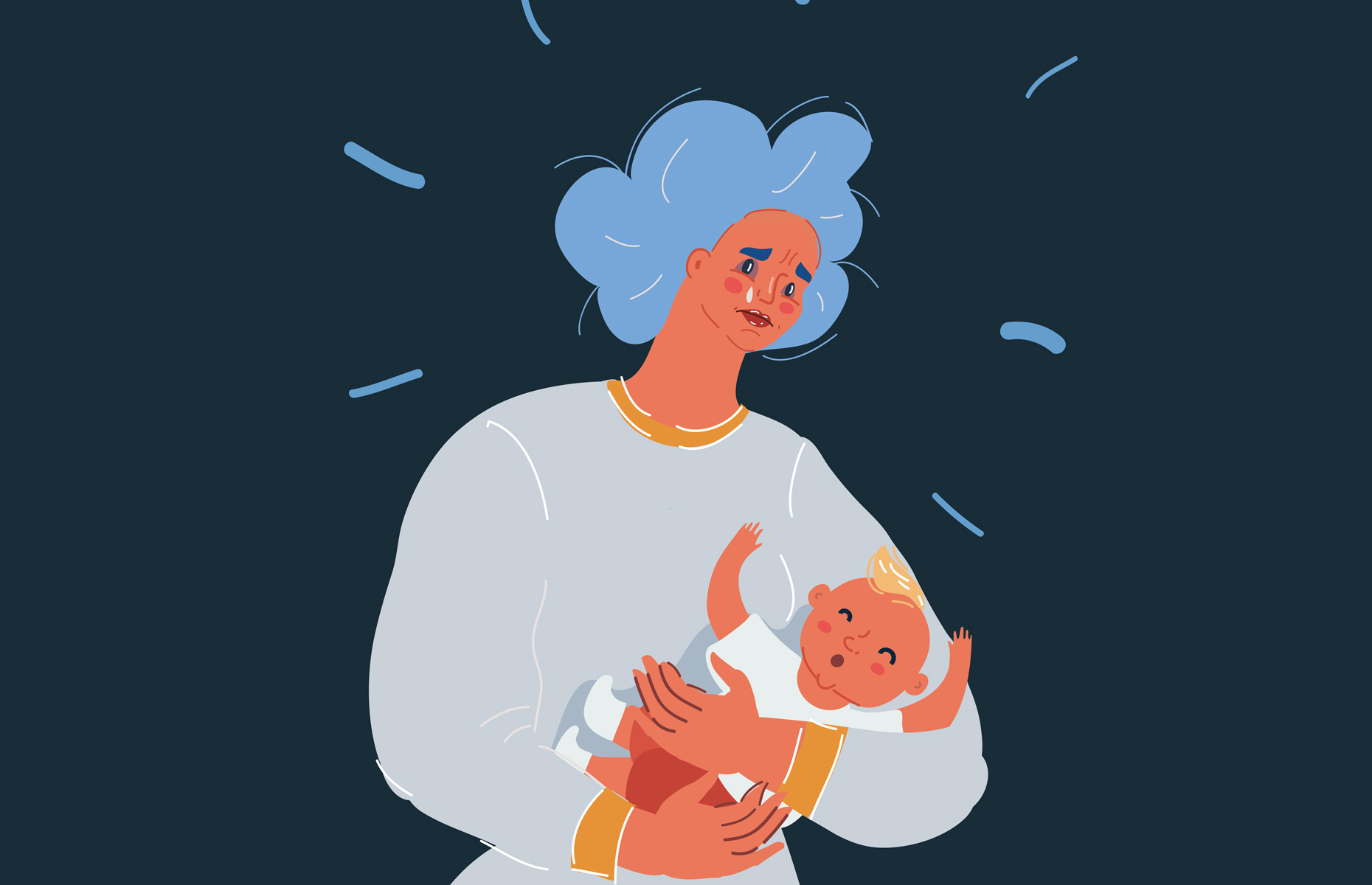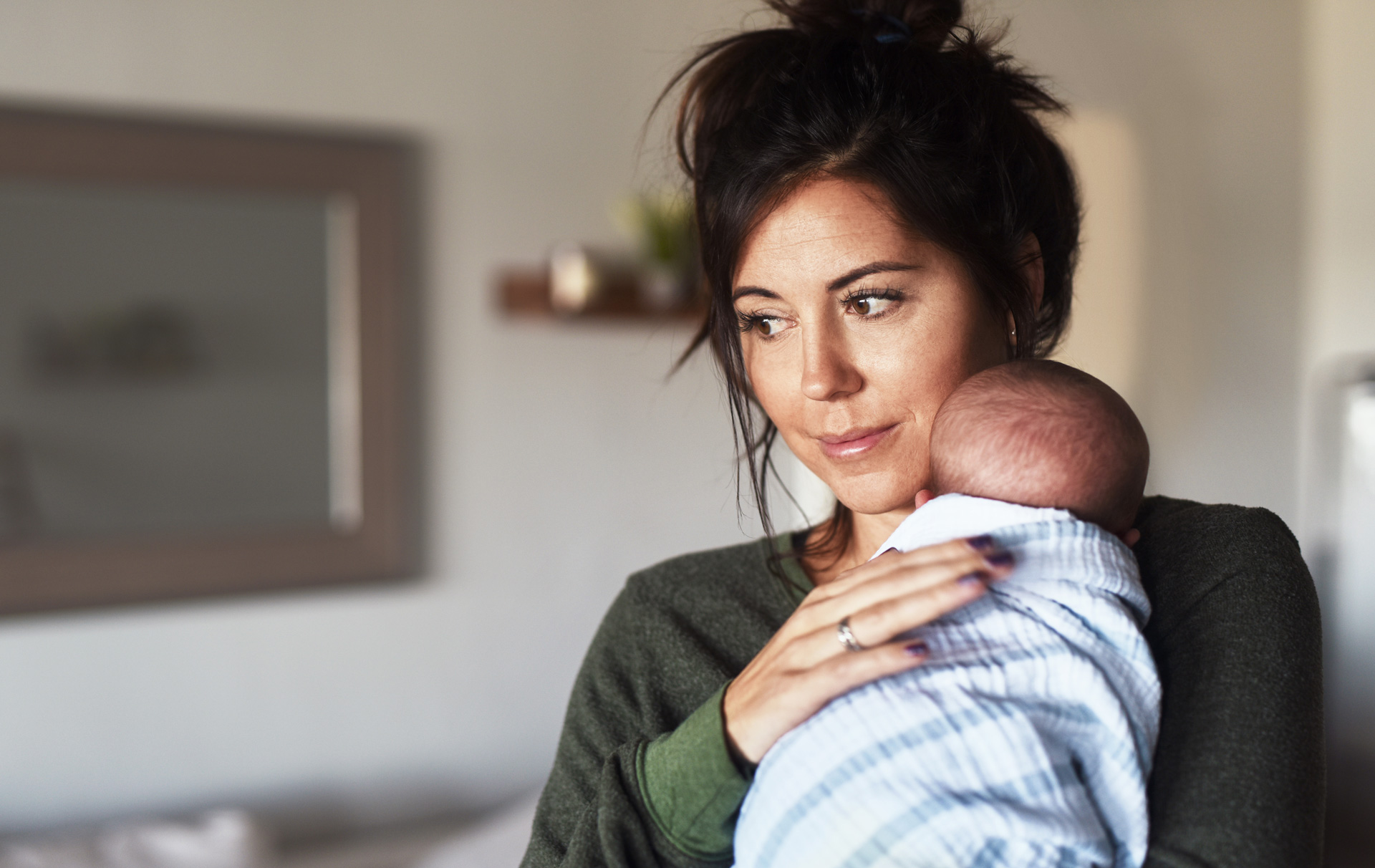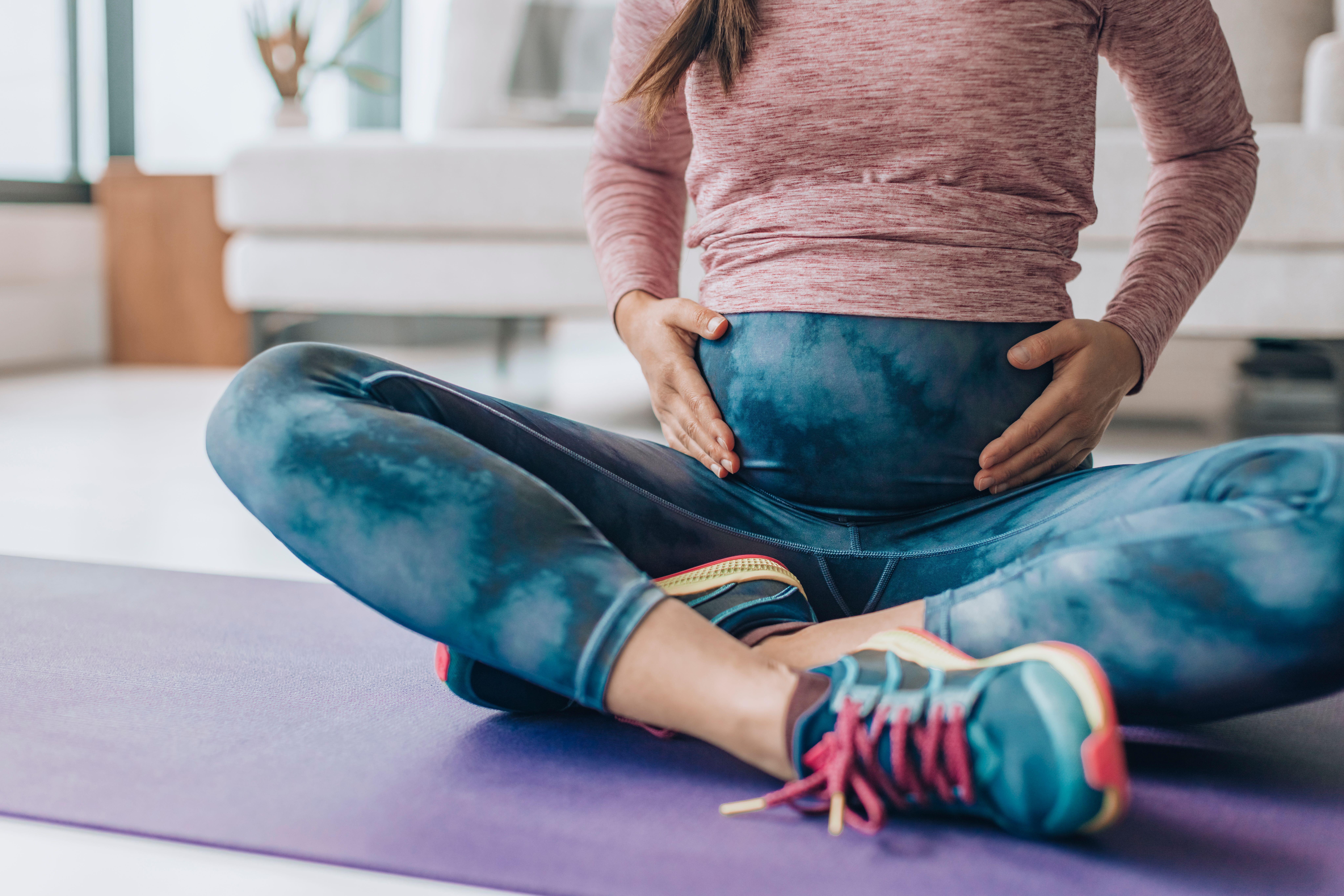Bowel problems after pregnancy and childbirth are common but should not be ignored, here's why
Two doctors discuss the most common bowel problems after pregnancy and childbirth, sharing their advice on managing the issues and when to see a doctor


Bowel problems after pregnancy and childbirth are common but should not be ignored. Understanding the issue and getting the right treatment or advice on how to manage your symptoms is important.
Your body will go through so many changes in both pregnancy and after childbirth, and a common change many women will experience after giving birth is bowel problems.
A study by Warwick Medical School revealed that one in five women develop anal incontinence at some stage after having a vaginal birth, and both of the experts we consulted for this article emphasised how common bowel issues are after pregnancy and childbirth.
Miss Shazia Malik, Consultant Obstetrician and Gynaecologist at The Portland Hospital, told us: “The postpartum period brings a whirlwind of changes, not just emotionally and physically in terms of external appearance but also internally, affecting bodily functions such as digestion. Many new mothers experience various bowel problems after giving birth, which, while common, can add stress to the already challenging postpartum period. Understanding these issues and knowing how to manage them can significantly ease this transition.”
Dr Malik shared her advice and expertise on common bowel problems after pregnancy and how to manage them for this article, along with highly experienced GP Dr Semiya Aziz.
The information in this article is for general purposes only and does not take the place of medical advice. It is essential to be guided by your GP and take note of official NHS advice. You should immediately seek medical attention if symptoms worsen or you are concerned about your health. If you are unsure or concerned about bowel problems after pregnancy, or experience persistent or severe symptoms, then it is crucial to seek personalised advice from a doctor as soon as possible.
What are common bowel problems after pregnancy?
Bowel problems are quite common after pregnancy. The body undergoes significant changes during and after birth, which can affect the digestive system and bowel movements.
GoodtoKnow Newsletter
Parenting advice, hot topics, best buys and family finance tips delivered straight to your inbox.
New mothers may experience a range of bowel issues, and bowel problems that commonly occur after pregnancy may include:
- Changes in bowel habits
- Constipation
- Diarrhea
- Piles (haemorrhoids)
- Faecal incontinence (leakage of stool)
- Difficulty in emptying the bowels
"These conditions are typically temporary but can be uncomfortable," says Dr Malik.
Pregnancy charity Tommy’s says, "Some women may also have problems controlling their bowels (known as anal or bowel incontinence). This is more likely to happen after a third- or fourth-degree tear. Most women who have a third- or fourth-degree tear heal completely and have no lasting complications."
"Don't be embarrassed to talk to your midwife, health visitor or GP about any incontinence problems. They can help you get the right care, such as bladder and bowel training, physiotherapy or surgery if needed."
What causes bowel problems after pregnancy and childbirth?
Dr Malik explains that several factors contribute to postpartum bowel problems. "The physical strain of childbirth, particularly with vaginal deliveries, can affect the muscles and nerves around the anus and rectum, leading to issues like hemorrhoids and constipation," she says. "Hormonal changes, adjustments in diet and fluid intake, and the effects of pain medication or anesthesia used during delivery can also impact bowel function. If you have a caesarean birth, it’s not unusual for the bowel to take a couple of days to get back to normal – so lots of fluids and gentle laxatives can be very helpful. Certain painkillers are more likely to cause constipation – particularly those with codeine, so take these for as short a time as your healing process will allow."
Dr Aziz adds, "For many women childbirth can be a very traumatic experience, particularly a vaginal delivery. This can lead to the stretching and weakening of the pelvic floor muscles, contributing to bowel problems which may lead to issues such as faecal incontinence and difficulty controlling bowel movements."
How common is constipation after birth?
Constipation is one of the most common bowel issues after childbirth and Dr Aziz says that it can be an "extremely common" issue, "in the days and weeks following delivery."
Constipation after birth can be caused by, "pain medications, reduced physical activity, and the body's recovery process," says Dr Malik. "It’s common to get a little dehydrated during labour, especially if it’s a long one, so along with this and the release of stress hormones during this time and after delivery (especially your first baby) can contribute to constipation."
Dr Malik adds that, "the fear of pain during bowel movements, especially after a perineal tear or episiotomy, can also contribute to constipation." Pregnancy charity Tommy’s reassures that it’s normal to feel worried when you first go to the loo after giving birth, "You are not alone if you are feeling a bit anxious about your first poo after birth. Many women get anxious about this, especially if they had stitches or a tear. You probably won’t have a poo for a few days after birth. If you had stitches, it’s very unlikely that you’ll break them, open the cut or tear again."
The NHS states,"You probably won't have a poo for a few days after the birth, but it's important not to let yourself get constipated." They advise: "Eat plenty of fresh fruit, vegetables, salad, wholegrain cereals and wholemeal bread, and drink plenty of water."
The NHS also reassures, "If you've had stitches, it's very unlikely you'll break them, or open up the cut or tear again." However the NHS also advise that you talk to your midwife or GP if you have constipation that won't go away, or, "if poo is leaking or you're pooing when you don't mean to."
Can you develop IBS after pregnancy?
Dr Aziz explains that there are no direct studies to indicate an association of IBS with pregnancy or childbirth, however she adds that pregnancy and childbirth can exacerbate symptoms of irritable bowel syndrome (IBS) in some women: "This is commonly due to hormonal changes or any stresses that may occur during the pregnancy or after birth, such as when looking after a newborn."
Dr Mailk reiterates that, "irritable bowel syndrome (IBS) is not directly caused by pregnancy or childbirth," but also adds that, "stress and hormonal changes associated with pregnancy can potentially trigger its onset in some women or exacerbate existing symptoms."
Does breastfeeding affect a mother's bowel movements?
Both doctors confirmed that breastfeeding can commonly affect a mother's bowel movements.
"Breastfeeding can influence bowel movements due to hormonal changes that affect the digestive system. Some mothers may experience constipation, while others find their bowel movements return to normal more quickly," says Dr Malik.
Dr Aziz expands, "This is due to a release of the hormone oxytocin during breastfeeding sessions, which may stimulate uterine contractions and occasionally lead to bowel movements. Hydration and the consumption of a nutritious diet while breastfeeding can also support healthy bowel function."
What to do if you're experiencing bowel problems after pregnancy
It is important to discuss any bowel changes with your healthcare professional. They will be able to assess the condition and provide appropriate advice on managing and treating your symptoms.
Remember, postpartum bowel problems are very common and lots of people who have given birth will have experienced similar issues - so the doctors, midwives and health visitors have seen it all - and they’re there to help. Don’t be afraid to ask them any questions and share any concerns you may have. Pregnancy charity Tommy’s reiterates, "Don’t be shy about asking your midwife or health visitor any questions you may have about what’s happening. No matter what the issue, they have lots of experience in helping women after giving birth and are there to help you."
How to ease symptoms of bowel problems after pregnancy
Dr Aziz and Dr Mailk explained to us that managing postpartum bowel problems involves a combination of diet, hydration, and gentle activity.
"Increasing fibre intake through fruits, vegetables, and whole grains can help alleviate constipation," says Dr Mailk. "Staying well-hydrated is crucial, especially for breastfeeding mothers. Gentle exercise, as approved by a healthcare provider, can also stimulate bowel movements."
Dr Aziz adds, "practising pelvic floor exercises (Kegels) may help to alleviate bowel symptoms."
For easing constipation or piles the NHS recommends, "Eat plenty of fresh fruit, vegetables, salad, wholegrain cereals and wholemeal bread, and drink plenty of water. This should make pooing easier and less painful." You can also speak to your GP about getting some haemorrhoid cream to help ease discomfort.
Dr Malik advises a 'slow and gentle' approach to recovery after birth, "The postpartum period lasts 42 days, so it’s important to give yourself time both physically and mentally to recover and adjust – slow and gentle works best. Try and make sure that you have time to keep yourself well nourished and hydrated – and keep enough supplies at home especially if you don’t have help at hand. Taking probiotics both in pregnancy and after your birth can be very helpful with bowel issues."
You should also speak to your GP or midwife about any postpartum bowel problems as they will be able to advise on the best course of treatment for you and offer personalised advice on how to soothe your symptoms.
How long does it take for bowels to return to normal after pregnancy?
"The time it takes for bowel functions to return to normal varies among new mothers but typically resolves within a few weeks after childbirth," says Dr Mailk. Dr Aziz explains, "It is difficult to put a timeframe as to when bowel function will return back to normal after pregnancy. It will vary on many factors including the delivery method, normalisation of hormonal levels and lifestyle measures undertaken, however gradual improvements begin to occur in the weeks following childbirth, as the body slowly begins to recover from pregnancy and childbirth."
Dr Mailk advises, "If problems persist, consulting a healthcare provider is advisable" and the NHS advises, "If a physical problem is bothering you, ask a GP or health visitor for help at any time. They can advise you and refer you to a specialist if necessary."
Should I be worried about postpartum bowel problems?
Bowel problems after pregnancy and childbirth are common but should not be ignored. Speaking to your GP or midwife about any postpartum bowel problems you experience is advised because they will be able to asses the issue and offer personalised advice based on your circumstances
Dr Mailk says, "While most bowel issues resolve on their own or with minor adjustments, prolonged problems should not be ignored. Persistent or severe symptoms could indicate an underlying condition that requires medical evaluation and treatment."
Dr Aziz agrees and advises, "A degree of irregularity or discomfort in the postpartum period can be expected however prolonged or severe bowel problems should always be discussed with the healthcare professional. Symptoms such as severe, prolonged or persistent pain, bleeding, or fecal incontinence, will require an urgent medical assessment with appropriate management and treatment."
Dr Mailk also adds, "Understanding potential bowel changes, implementing simple lifestyle changes, and seeking medical advice when necessary, can help ease symptoms. Please do speak to a medical professional if you are concerned about symptoms you experience postpartum."
Disclaimer
The information on GoodTo.com does not constitute medical or other health advice or diagnosis and should not be used as such. Although GoodtoKnow consults medical experts to create and fact-check content, this information is for general purposes only and does not take the place of medical advice. Always seek the guidance of a qualified health professional or seek urgent medical attention if needed.
Our experts

Dr Shazia Malik is a Consultant Obstetrician and Gynaecologist at The Portland Hospital (part of HCA Healthcare UK). Dr Malik is also based at Barnet Hospital in London, where she balances a busy Obstetric workload with being the Early Pregnancy and Emergency Gynaecology lead. Dr Malik obtained her medical degree at the University of Liverpool in 1991, where she graduated with Honours and the Gold Medal in Obstetrics and Gynaecology. She then embarked in specialist training in obstetrics at some of the largest tertiary level units in the UK.

Dr Semiya Aziz is a seasoned general practitioner with over 20 years of experience as a GP in both the NHS and in private practice. She first obtained her degree in microbiology from Queen Mary University of London, and subsequently, she obtained her MBBS from The Royal London Hospital. She is a member of the Royal College of General Practitioners and the British Society of Lifestyle Medicine. She is also registered with the Care Quality Commission (CQC) and the General Medical Council (GMC).

An internationally published digital journalist and editor, Rachael has worked for both news and lifestyle websites in the UK and abroad. Rachael's published work covers a broad spectrum of topics and she has written about everything from the future of sustainable travel, to the impact of the coronavirus pandemic on the world we live in, to the psychology of colour.
-
 Postpartum psychosis: causes, signs, risks and treatment
Postpartum psychosis: causes, signs, risks and treatmentPostpartum psychosis can be a terrifying experience for a new mum. More extreme than postnatal depression, it needs urgent care but there is help available.
By Debra Waters Last updated
-
 First period after a baby: What to expect from your first postpartum period
First period after a baby: What to expect from your first postpartum periodThe first period after a baby can be daunting. Here's what to expect – from how long a first postpartum period lasts to how to tell it's a period or lochia.
By Debra Waters Published
-
 Postnatal exercise: 5 ways to exercise after having a baby
Postnatal exercise: 5 ways to exercise after having a babyRegular post-pregnancy exercise can improve posture and strength, as well as increasing your energy and overall wellness
By Daniella Gray Last updated
-
 How to exercise your pelvic floor
How to exercise your pelvic floorYou've probably heard of pelvic floor exercises before - but are you doing them properly, or as often as you should be?
By GoodtoKnow Last updated